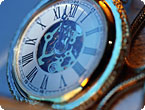I pulled myself out of bed Sunday morning, poured a cup of steaming black coffee and stumbled into my writing room. I used to be one of those people who jump out of bed, rested, alert, looking good and ready to face a new day full of energy and vigor. Not anymore. Now I struggle to fall asleep, struggle to wake up and would be hard pressed to find anyone who’d say I looked good first thing in the morning.
Cup in hand, I leaned over my desk and switched on my laptop – a morning routine repeated every day of the year. I sank into the desk chair and stared at the creamy yellow wall in front of me. A beep from the computer told me to key in my password. A few taps and I waited. A squirrel scavenged for hazelnut fragments in the shelled picnic area under the overgrown cherry tree. A serious pruning and one more year before decide what to do with the monster. I clicked on Outlook and took a few more sips of hot coffee, willing myself awake, alert.
Outlook opened, and Renee Zuckerbrot was in my Inbox. I’d submitted the query less than 24 hours prior. In less than 24 hours this literary agent in New York opened her own Inbox and looked over my synopsis, bio and first chapter. Her decision: “Moving Mom isn't a good fit for my list.”
I was stunned. This world of email queries was new to me. Less than half dozen years ago when I was querying The Thirty-Ninth Victim few agents accepted on-line submissions, making the process costly, slow and wasteful. Here I had a response, albeit not the response I wanted, in 24 hours and it cost me nothing. Not a single trip to the post office.
I slumped at my desk. Rejection. Such a harsh word. I decided to search for a positive spin. What good comes in an agent’s rejection? At least she read it, I thought. Or, at least she read enough to know it wasn’t a manuscript she’d be successful representing. And that’s what any writer wants, isn’t it? An agent who is as passionate about the work as the writer herself. An agent who feels a strong enough connection to the piece to know she’ll be able to place it with just the right publishing house.
Another positive lies in the quality of the response. Renee Zuckerbrot responded not only with courtesy and respect, but she also included a list of on-line, searchable agent databases to help me locate an agent who might be a better match for my work. A rejection that offers that type of advice and encouragement is definitely a positive.
There could be as many agents as there are writers, and it may be a bit like finding the proverbial needle in the haystack to find the right match, but I’ll put a dozen queries into cyberspace. With each rejection, I’ll narrow my search, blowing the chafe from the stalk, moving the haystack one handful at a time until the needle pricks my finger, until I wake one morning, pour my coffee, click on my computer and find an offer of representation.
For those who are interested, here are the websites that Rene Zuckerbrot suggested:
AAR online: http://aaronline.org/
Agent in a Box: http://www.webook.com/literary-agents/writers.aspx
Agentquery: http://www.agentquery.com/
The Agent Database at Poets &Writers: http://www.pw.org/literary_agents?perpage=*
AAR online: http://aaronline.org/
Agent in a Box: http://www.webook.com/literary-agents/writers.aspx
Agentquery: http://www.agentquery.com/
The Agent Database at Poets &Writers: http://www.pw.org/literary_agents?perpage=*










